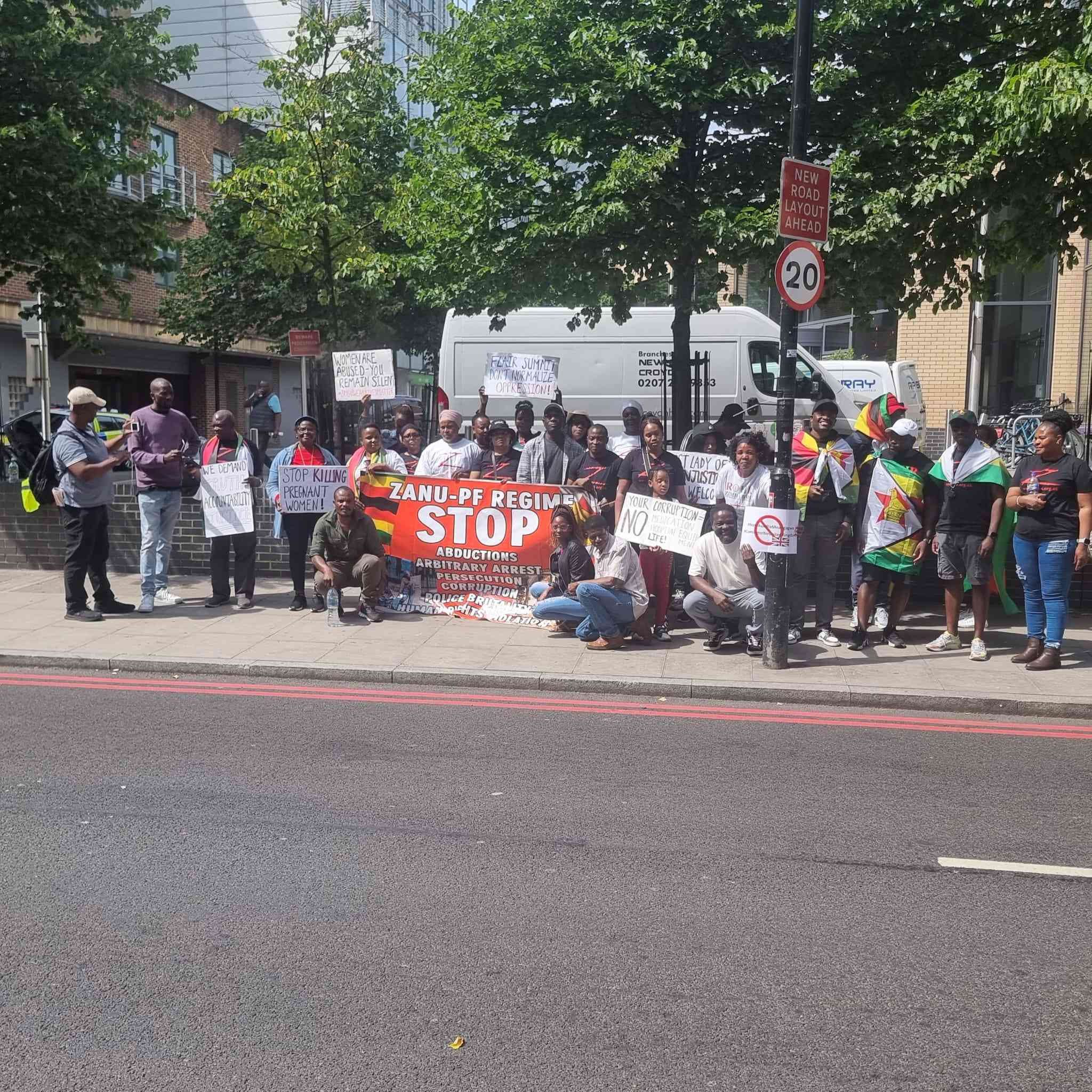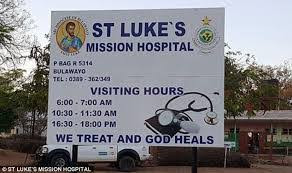
THE recent announcement that Zimbabwean First Lady Auxillia Mnangagwa was barred from attending the FLAIR Summit in the United Kingdom, hailed by protesting diaspora groups as "Mission Accomplished," represents far more than a simple travel hiccup or diplomatic snub.
It is a potent symbol of shifting dynamics in international engagement, the growing power of diaspora activism, and the inescapable weight of political baggage carried by representatives of contested regimes. This exclusion, secured through persistent protest, underscores a refusal to grant legitimacy on the global stage without accountability.
The FLAIR Summit, dedicated to fostering female leadership, inclusion, and sisterhood, presented an opportunity for Auxillia Mnangagwa to project an image of benevolent statesmanship and humanitarian concern - an image carefully cultivated through domestic philanthropic initiatives. Yet, for the Zimbabwean diaspora protesters who mobilized swiftly and effectively in the UK, this potential platform was anathema. They argued that her presence would be a profound contradiction to the summit's stated ideals.
Their core contention rested on the First Lady's inextricable link to the regime of her husband, President Emmerson Mnangagwa, a regime consistently accused by international bodies, human rights organizations, and Zimbabwean citizens of systematic corruption, electoral manipulation, human rights abuses, and economic mismanagement that has plunged the nation into crisis.
The protesters' "mission" was clear: to prevent the whitewashing of this record. They leveraged allegations not just against the government broadly, but specifically highlighted controversies surrounding the First Lady herself. These included her perceived role in the extravagant lifestyle of the ruling elite amidst crippling national poverty, her alleged involvement in opaque business dealings (notably referenced in investigations like "Gold Mafia"), and her position as a beneficiary and symbol of a system protesters view as fundamentally predatory. Their strategy was multifaceted: vocal demonstrations outside potential venues, targeted lobbying of summit organizers, and appeals to UK authorities regarding the suitability of granting entry to such a figure.
The success of this campaign – the "accomplishment" – lies in its tangible outcome. While the precise mechanism (visa denial, disinvitation by organizers, or pressure-induced withdrawal) remains diplomatically opaque, the result is unambiguous: Mnangagwa will not attend. This outcome validates the protesters' core argument. It demonstrates that the international community, or at least specific actors within it, can be swayed by evidence of misgovernance and mobilized public pressure. It signifies that the carefully curated domestic image of a philanthropic First Lady can be pierced on the international stage by the harsh realities of her association with a deeply controversial administration.
The implications of this barring are significant. For the Zimbabwean diaspora, it is a rare and hard-won victory. Living far from home, often deeply affected by the conditions that drove them abroad, they frequently feel powerless to influence events in Harare. This successful intervention demonstrates their capacity to act as transnational watchdogs, holding their home government accountable on foreign soil and denying it the legitimacy conferred by prestigious international platforms. It empowers them and signals to the Mnangagwa regime that its actions have consequences beyond its borders.
For the Mnangagwa government, it is a stark diplomatic and public relations setback. It reinforces the perception that despite efforts at international re-engagement, the regime remains tainted by allegations of abuse and corruption. The exclusion of the First Lady, a figure often used in soft diplomacy, is a personal blow and a signal that certain doors in the international community remain firmly closed. The government's silence in the immediate aftermath speaks volumes about the sting of this rejection.
- Mavhunga puts DeMbare into Chibuku quarterfinals
- Zim needs committed leaders to escape political, economic quicksands
- Bulls to charge into Zimbabwe gold stocks
- Ndiraya concerned as goals dry up
Keep Reading
For international forums like the FLAIR Summit, the episode raises complex questions. While promoting inclusion is a noble goal, does inclusion extend unconditionally to representatives of regimes accused of systematically excluding their own citizens from basic rights and economic opportunity through misrule? The organizers, faced with vocal opposition rooted in serious allegations, seemingly concluded that Mnangagwa's presence would undermine the summit's credibility and its core values. This sets a precedent, highlighting the difficult balance between open dialogue and avoiding the platforming of individuals seen as emblematic of oppression.
Ultimately, the barring of Auxillia Mnangagwa from the FLAIR Summit is a microcosm of a larger struggle. It is a testament to the agency of a determined diaspora refusing to let the narrative of Zimbabwe be solely dictated by its rulers. It is a reminder that symbols matter – the symbol of a First Lady representing "sisterhood" rings hollow to those who see her as representing impunity. And it is a demonstration that access to the global stage is not an automatic right; it can be contested and denied when the shadow cast by political association becomes too dark. The protesters' cry of "Mission Accomplished" marks a significant moment in this ongoing contest over legitimacy, accountability, and the true meaning of inclusion on the world stage.
The diasporas delegated Patricia Chinyoka, Cannicious Nkala, Thomas Machingauta, John Burke, Panyika Karimanzira, Vengai Mutsawu, Patson Muzuwa and Tatenda Changambika to the organizing committee for this event.
Notable activists at the protest included Henry Itayi Makambe, Vengai Mutsawu, Genius Mamwadu, Diana Machingauta, Xoliso Sithole, Lloyd Chiedza Shumbayaonda, Regina Mtekedza, Theophilas Mkuhlani, Kudzaishe Dodzo, Fransisca Chiduku, Evy Kagandi, Grace Chipazura, Phylis Melody Magejo, Dumisani Nyathi, Dickson Chikwizo, Boniface Zengeni, Mollin Muteto, Thomas Machingauta, Evy Kagandi, Mellisa Mbavarira and Josephine Sipiwe Jenje-Mudimbu and Evy Kagandi.
Thomas Machingauta is a Zimbawean based in the Diaspora. He writes in his capacity






